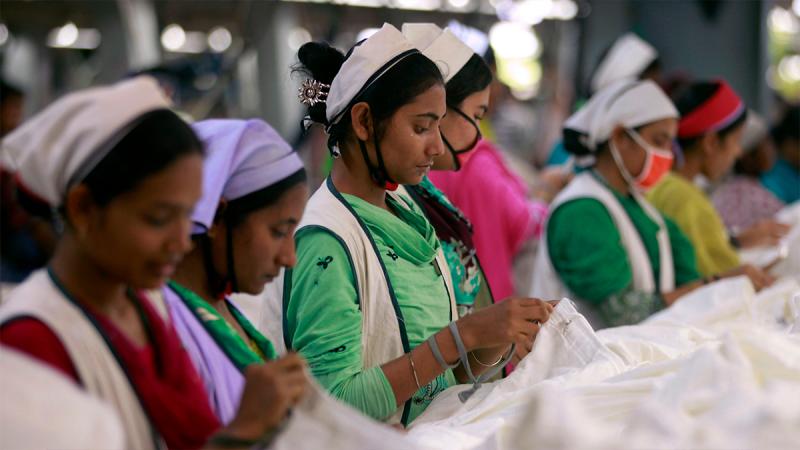 Bangladesh is ready to discuss about the present condition and future work plan of readymade garment sector in the fourth follow-up meeting of the Sustainability Compact to be held in Brussels on Monday.
Bangladesh is ready to discuss about the present condition and future work plan of readymade garment sector in the fourth follow-up meeting of the Sustainability Compact to be held in Brussels on Monday.
Commerce Minister Tofail Ahmed is leading a delegation, which will sit with other stakeholders including the European Union and the US, the biggest two buyers of Bangladeshi products.
The Bangladesh Sustainability Compact brings together the European Union (EU), Bangladesh, the US, Canada and the International Labour Organisation (ILO) with the common goal of improving working conditions and the respect of labour rights in Bangladesh’s ready-made garment industry to ensure that industrial disasters such as the Rana Plaza tragedy are not repeated.
To do this, the Compact is built on short and long-term commitments related to three inter-linked pillars: respect for labour rights; structural integrity of buildings and occupational safety and health; and responsible business conduct.
In Sunday’s meeting, in the opening session, the Compact partners would discuss it’s implementation and update situation of the three pillars. In the afternoon, there would be three sessions on “five years after the launch of the Compact: Taking Stock and Staying Engaged”, “ensuring consistency with and effective implementation of international labour standards” and “ensuring occupational safety and health, factory safety, compensation in case of work injury and responsible business practices in the garment sector of Bangladesh.”
In the afternoon, there would be three sessions on “five years after the launch of the Compact: Taking Stock and Staying Engaged”, “ensuring consistency with and effective implementation of international labour standards” and “ensuring occupational safety and health, factory safety, compensation in case of work injury and responsible business practices in the garment sector of Bangladesh.”
Sources close to the issue said, in the meeting, it is expected that the EU and others might want to expand the coverage of the Compact to non-RMG sector.
Meanwhile, the private sector has vehemently opposed the expansion of compact sustainability coverage to non-RMG exporting or non-exporting sectors.
It also feels that the compact sustainability, agreed after the Rana Plaza tragedy to revamp only RMG sector in 2013, should come to an end when it fulfills the requirement of the text.
 Business
Business
41127 hour(s) 51 minute(s) ago ;
Morning 10:45 ; Thursday ; Jun 26, 2025
Compact meet to review RMG sector in Bangladesh
Send
Bangla Tribune Report
Published : 08:00, Jun 25, 2018 | Updated : 08:00, Jun 25, 2018
Published : 08:00, Jun 25, 2018 | Updated : 08:00, Jun 25, 2018
0 ...0 ...
/ssz/
Topics: Top Stories
- KOICA donates medical supplies to BSMMU
- 5 more flights to take back British nationals to London
- Covid19: Rajarbagh, Mohammadpur worst affected
- Momen joins UN solidarity song over COVID-19 combat
- Covid-19: OIC to hold special meeting
- WFP begins food distribution in Cox’s Bazar
- WFP begins food distribution in Cox’s Bazar
- 290 return home to Australia
- Third charter flight for US citizens to return home
- Dhaka proposes to postpone D8 Summit
Unauthorized use of news, image, information, etc published by Bangla Tribune is punishable by copyright law. Appropriate legal steps will be taken by the management against any person or body that infringes those laws.
Bangla Tribune is one of the most revered online newspapers in Bangladesh, due to its reputation of neutral coverage and incisive analysis.
F R Tower, 8/C Panthapath, Shukrabad, Dhaka-1207 | Phone: 58151324; 58151326, Fax: 58151329 | Mob: 01730794527, 01730794528






